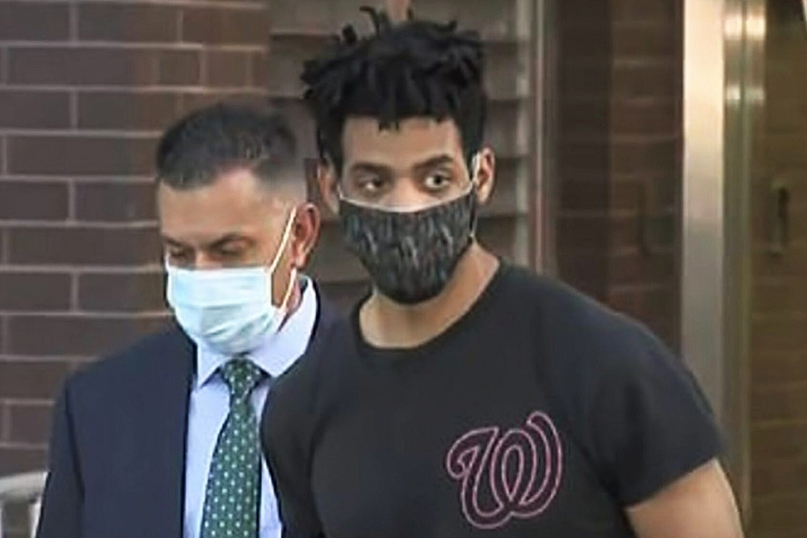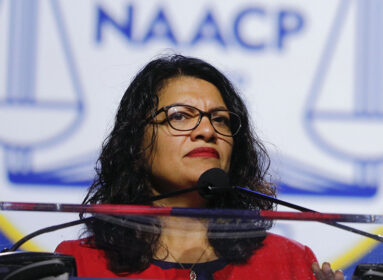
(JTA) – When a suspect in a series of synagogue attacks in the Riverdale section of the Bronx was released by a judge without bail Sunday evening, it revived a debate among Jews over New York state’s elimination of cash bail in most arrests – a measure hailed by progressive groups and challenged by law enforcement, Republicans and some prominent Jewish politicians.
Jordan Burnette, 29, was arrested early Saturday morning and charged with the rock-throwing attacks that shattered windows and glass doors at four synagogues in the heavily Jewish neighborhood starting the weekend of April 24. He is facing 42 hate crime and other charges. At first, a judge set bail for Burnette at $20,000. Hours later, another judge overturned that decision and allowed Burnette a supervised release, saying a suspect with his charges cannot be held on bail under the current law. Under supervised release, suspects must regularly meet with a social worker while they await trial. If suspects do not comply with the reporting requirements, the judge can revoke the supervised release and return them to jail.
In the days after Burnette’s release, several national organizations objected to the judge’s decision and called for the bail reform bill to be amended to allow judges to set bail for perpetrators of hate crimes. Among them was Rabbi Abraham Cooper of the Simon Wiesenthal Center in California.“Change the no bail laws or New York may become the next Paris!” he said in a statement. “New York must not allow hate mongers to attack Houses of Worship with impunity. Twenty years ago, we witnessed similar scenarios occur in France, where judges refused to hold those who vandalized synagogues accountable. That soon escalated to fire-bombings, violence and even murder.”
The bail reform law was modified in April 2020 to expand the types of serious crimes, including sex trafficking and grand larceny, under which judges could still set bail, as well for certain persistent offenders. The debate over bail reform first erupted in late 2019 and early 2020 when a series of antisemitic attacks on Orthodox Jews in New York City coincided with the passage of a bail reform package by the New York State Legislature. Most people arrested for a crime are not held in jail while they await trial. But those who could not afford bail could sit in jail for months or years until a trial took place.
Advocates for the elimination of cash bail pointed to the case of Kalief Browder, a teenager who killed himself after being jailed at the city’s notorious Rikers Island for years while awaiting trial. But in the wake of the series of antisemitic attacks in New York City in late 2019 and early 2020, some Jewish leaders criticized the bail reform laws, claiming they were leading to an increase in crime. And after a woman named Tiffany Harris was arrested for assaulting a woman just days after her arrest for slapping three Orthodox Jewish women and subsequent release, the critics of bail reform grew louder.
As objections to the reforms increased, more than 100 mostly progressive New York Jewish organizations, leaders and rabbis signed a letter to Gov. Andrew Cuomo supporting the bail reform law. Undoing the law, they wrote, “will perpetuate the racial and economic inequality that bail reform counteracted.”
Main Photo: Jordan Burnette, the suspect in a series of synagogue attacks in the Riverdale section of the Bronx, is being charged with burglary as a hate crime. (Screenshot from WCBS-2)







 Southern New England Jewish Ledger
Southern New England Jewish Ledger















